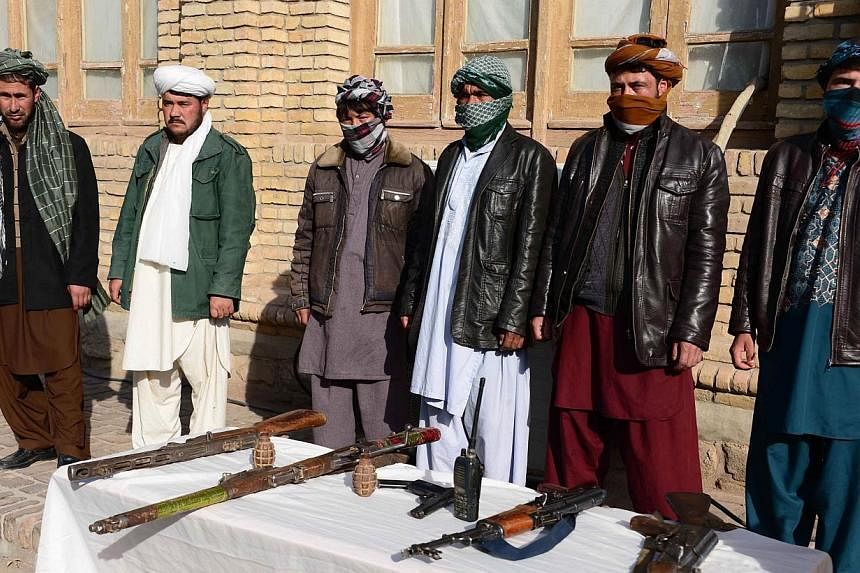Afghan Taleban's criticism of the Peshawar school attack by Pakistan Taleban as "un-Islamic" has highlighted the fact that the two militant groups may usually share the same ideology, but may not share the same approach. Here's a look at basic differences between them:
Roots and Leadership
The Pakistani Taleban, also called Tehreek-e-Taleban Pakistan (TTP), is a loose coalition of militant groups operating from the semi-autonomous tribal zones in north-west Pakistan near the Afghanistan border. It was formed in 2007 under the leadership of Baitullah Mehsud who has since been killed. Its present leader is Maulana Fazlullah. TTP reportedly fragmented into four factions in 2014.
Afghan Taleban was founded in 1994 under the leadership of Mullah Mohammed Omar, who remains its commander and spiritual leader to date. The group's main goal is to form an Islamic state in Afghanistan. The group ruled Afghanistan from 1996 to 2001 before it was overthrown by the United States after the Sept 11, 2001, attacks.
Members
TTP leaders are mainly veteran foreign fighters from Arab and Central Asian countries, who fought in Afghanistan in the past, and later crossed over to north-west Pakistan and consolidated control over tribal regions there.
Afghan Taleban comprises mainly of nationalistic Pashtun fighters committed to building an Islamist state in Afghanistan. Veterans among them were members of the mujahideen who were assisted by the US to fight against the Soviet occupation.
Objectives
TTP's main objective is to almost exclusively target elements of the Pakistani state, after the Pakistani military conducted incursions in north-west tribal areas to combat foreign militants entering the country. Of late, it has claimed responsibility for international acts of terror like the 2010 attempted car bombing in New York's Times Square.
Afghan Taleban, on the other hand, strictly opposes targeting Pakistan which allegedly supports the militants financially and militarily, and which had formally recognised the Taleban government in Afghanistan in 1996.
Relations with Al-Qaeda
TTP has close ties to Al-Qaeda, sharing money and bomb experts and makers. US terrorism experts say members of the two groups train together, plan together and plot together. TTP also draws ideological guidance from Al-Qaeda, while Al-Qaeda relies on the TTP for safe haven in the Pashtun areas along the Afghan-Pakistani border.
Afghan Taleban was accused of providing a sanctuary for Osama bin Laden and the Al-Qaeda terrorists blamed for the 9/11 attacks. But apart from the periodic alliances, the two groups resent each other and have a great deal of animosity between them. Afghan Taleban founder Mullah Omar had opposed the international activities of Osama.
Major attacks
Pakistan Taleban has a string of notorious attacks to its name, mainly in north-western regions of Pakistan. The members have been linked to the assassination of former Pakistan premier Benazir Bhutto in 2007, and claimed attack on Nobel laureate Malala Yousafzai in 2012 and on the Jinnah international airport in Karachi in 2014.
Afghan Taleban is known for carrying out warfare against the Afghan National Security Forces and their Nato trainers. The militants were known to be brutal with civilians during their stint in power in Afghanistan and had infamously blown up the Bamiyan Buddha statues in 2001.
Source: BBC, Huffington Post, NYT

